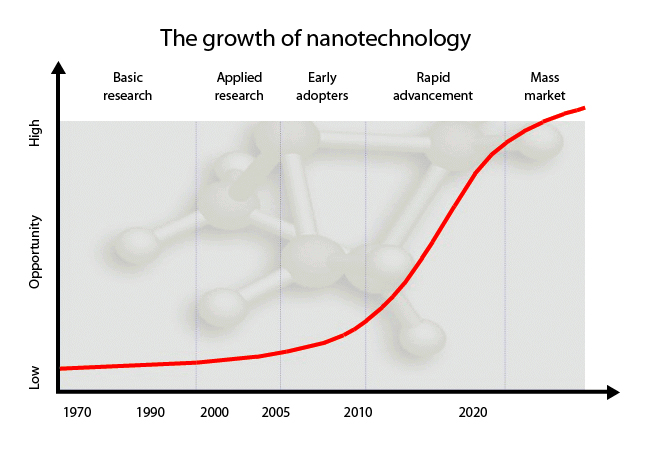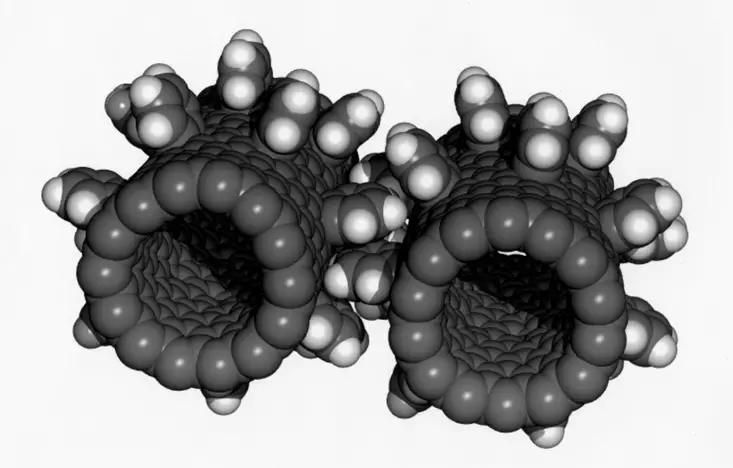
Further into the future, nanotechnology will play a major role in medicine and longevity. Blood cell-sized devices will go directly into the human body, eradicating pathogens and keeping people healthy. Full-immersion virtual reality and other advanced concepts will become possible through the use of these "nanobots".
Meanwhile, so-called "nanofabricators" would allow the creation of macro-scale objects on an atom-by-atom basis. Home appliances using this technology could serve as 3-D printers - downloading products from the web and literally building them from scratch. Physical items would each have their own code or algorithm that would program the machine to create them.*
Quantum computers, invisibility cloaks and space elevators may one day become a reality, thanks to nanotech.
In the more distant future, nanotechnology could allow humans to make the transition to fully non-biological forms. Entire bodies and brains could be reconstructed at the atomic scale, leading to practical immortality.
Much debate has taken place on the implications of nanotechnology. It has the potential to create radically new materials and devices with a vast range of applications in engineering, medicine, electronics and energy production. On the other hand, nanotechnology raises many of the same issues as with any introduction of new technology - including concerns about the toxicity and environmental impact of nanomaterials, and their potential effects on global economics, as well as speculation about various doomsday scenarios.* These concerns have led to a debate among advocacy groups and governments on whether special regulation of nanotechnology is required.

No comments:
Post a Comment